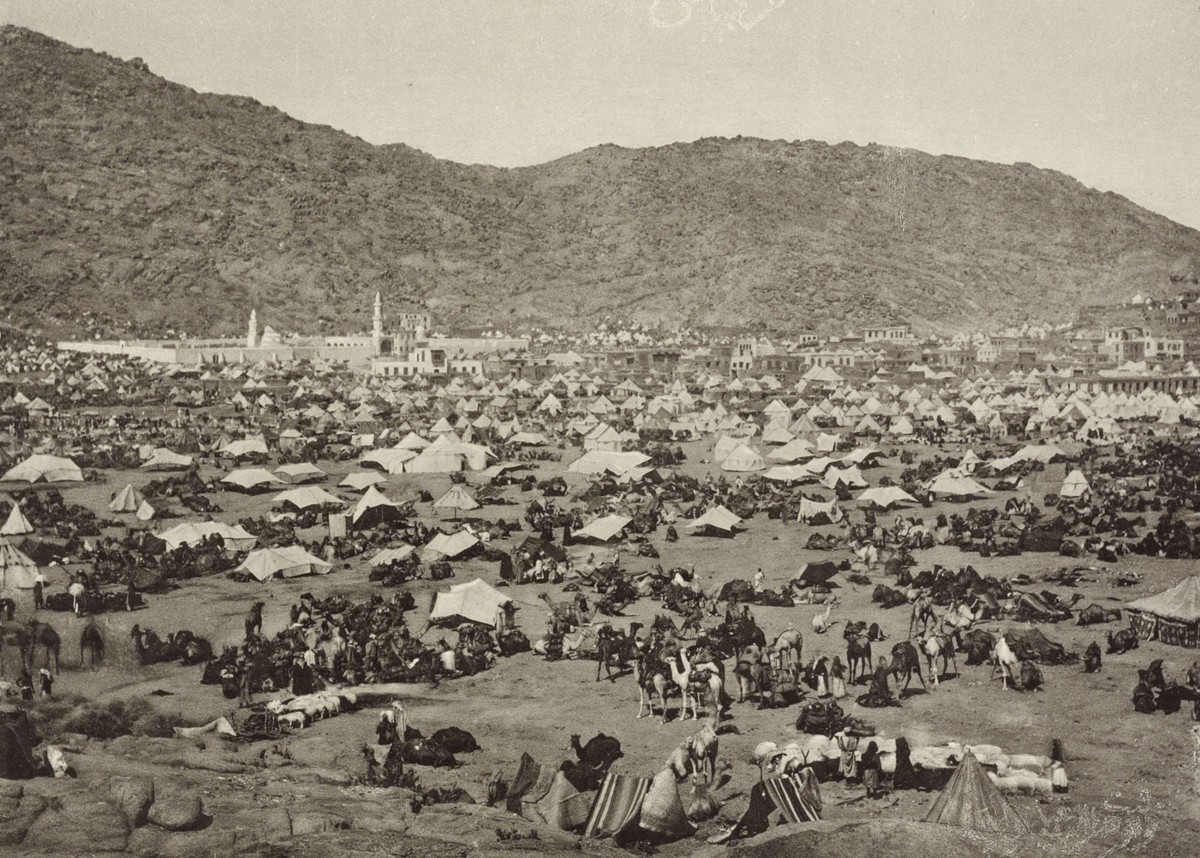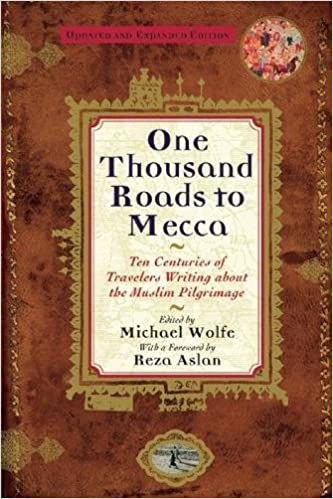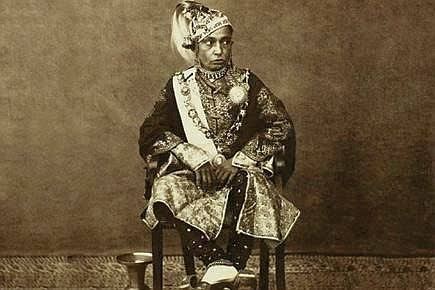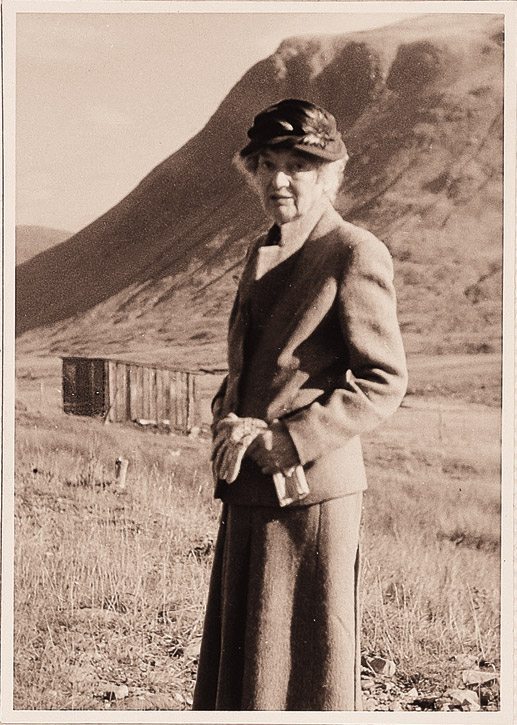#Culture
One Thousand Roads to Makkah: Four Women’s Stories | Book Review
Published

“One Thousand Roads to Mecca: Ten Centuries of Travelers Writing about the Muslim Pilgrimage” (collected and edited by Michael Wolfe) is a treasure trove: the chronicles of hujjaaj from across time and geography, including – to my special interest – Muslim women of varying backgrounds, in wildly different time periods. I immediately jumped to their stories, eager to discover what it must have been like to make the long journey in their own eras. What historical factoids and spiritual reflections might they have shared, considered inconsequential to some but deeply meaningful to others?

After all, this was more than just any travel writing: this was about Hajj, the journey of a lifetime, the fifth pillar of Islam, the believer’s response to Allah’s invitation to His House. As it is, we have precious little details about the lives of Muslim women – in their own words or otherwise – from the distant past; it is a painful truism that history has rarely considered women’s stories worth knowing if they were not completely and utterly exceptional (or, perhaps, completely and utterly scandalous). Case in point – in this book, listing almost two dozen travelers and their tales, only four of them were women…. And three of them were white, Western women, who experienced more than some small amount of privilege. Even so – what, then, was it like for these women of the past, who had embarked on the greatest journeys of any Muslim’s life?
Keep supporting MuslimMatters for the sake of Allah
Alhamdulillah, we're at over 850 supporters. Help us get to 900 supporters this month. All it takes is a small gift from a reader like you to keep us going, for just $2 / month.
The Prophet (SAW) has taught us the best of deeds are those that done consistently, even if they are small. Click here to support MuslimMatters with a monthly donation of $2 per month. Set it and collect blessings from Allah (swt) for the khayr you're supporting without thinking about it.
…
Nawab Sikandar, the Begum of Bhopal, was a recognized ruler in India (although, unfortunately, of a pro-Britain bent). In 1863, she left India for Makkah with a retinue of several hundred people, including her mother and uncle. She arrived in Jeddah in January of 1864, laden with wealth, of which she was quickly relieved in the form of official taxes from the Ottoman Pasha and the Sharif of Makkah, and unofficially by bandit Bedouins.
The Begum’s account of her journey is – to the modern day reader – almost amusing. Her outrage at the bureaucracy is followed up with multiple complaints sent to harbour masters, British consuls, and others. Alas, the Begum’s situation was not much improved. Instead, her invitation to dinner at the Sharif’s home comes in the form of having her escort violently assaulted as she walked through Makkah, and being threatened with having her retinue shot in the head if she declined said invitation. Snidely, she comments that by the time she arrived at his home and was brought to the food, “the dew had fallen upon the food, making it as close as nice, so that nothing had any flavour.”
Between her mother being temporarily abducted by robbers along the roads, being swarmed by the beggars who had discovered her wealth, and various other inconveniences, the Begum of Bhopal makes it clear just how little she thought of Makkah and its people. “Almost all the bad characters that have been driven out of India may well be found in Makkah,” she writes. She continues, astonished and horrified, at one particular discovery: “Women frequently contract as many as ten marriages, and those who have only been married twice are few in number. If a woman sees her husband growing old, or if she happen to admire anyone else, she goes to the Sharif, and after having settled the matter with him, she puts away her husband and takes to herself another, who is perhaps young, good-looking, and rich. In this way a marriage seldom lasts more than a year or two…”
Despite – or perhaps because of! – her displeasure, the Begum’s descriptions of her experiences are detailed and descriptive, evoking images of Makkah’s sights and scents (and scoundrels!). What stood out, however, was a particularly unique scene: a description of visiting the household of the Sharif of Makkah, meeting his mother and four wives. (The Begum notes that he had seven wives, four of whom were present, but I suspect that the remaining three were concubines rather than legal wives.)
Sikandar Begum describes the beautiful clothing of the women in attendance, the societal niceties that took place, and the rather infuriating observation that “Those wives only who have borne children to the Sharif are allowed to sit down in his presence, while those who have no family are compelled to stand with their hands put together.”

If it were not for the fact that the Begum was a woman who had access to women’s spaces – in this case, the private spaces of upper class women – these details would likely never have been noted in traditional history writing. Muslim women’s spaces have always been private spheres, the minutiae and particulars of their daily lives hidden away by the guarded jealousy of their menfolk, and often considered irrelevant to begin with.
Yet the reality of female existence, and its dramatic differences even in undertaking and completing the same, sacred tasks of Hajj, becomes even more clear in the writings of Winifred Stegar of Australia. Winifred had accepted Islam and married a desi Muslim man in China, moving with him to Australia. In 1926, she and her family embarked from Australia to India, and from thence to the Sacred Land.
Winifred’s recollections of her arduous journey to Hajj are a far cry from Nawab Sikandar’s litany of complaints. Though she traveled in far less luxury, and with far more difficulty, Winifred’s sincerity, strength of spirit, and good humour shine through her written memories. She describes moments of unexpected beauty, such as an ancient train in Lucknow dedicated to the hujjaaj, bedecked in wreaths of jasmine and roses from top to bottom; she speaks fondly of her kind, dignified brother-in-law, who takes charge of two abandoned young girls found aboard the rusted, repurposed ship they were all taking across the Red Sea.
One of the most dramatic scenes in Winifred’s chronicles describes the medical examination all the aspiring pilgrims had to go through before boarding their ship. The men were taken to a shaded area and provided with cool water to drink as they awaited their exams. Meanwhile, the four hundred women were taken to crumbling ruins with no shade and no drinks. “I could not help wondering what our sex had done that we might not enjoy the comfort of shelter and cool water as did the men,” Winifred writes, and I, almost a hundred years later, wonder the same. How is it that it has always been seen as common and unquestioned for women to endure conditions that our brethren need not tolerate, in the same time and the same position?
The medical examination turns into a fierce brawl between Winifred and an abusive Eurasian (non-Muslim) woman doctor; Winifred emerges victorious, the doctor is arrested, and the hujjaaj make their way across the Red Sea. Winifred’s stories leave one with a deep appreciation for both modern comforts and for her own determination to continue with the blessed journey.

Not long after Winifred Stegar came the legendary Lady Evelyn Cobbold of England, who made the trek to Makkah at the age of 66. Her accounts are riveting, of a freshly-minted Kingdom of Saudi Arabia, still mysterious and magical and untainted by the dirty politics of oil.
Lady Evelyn’s journals are perhaps the most detailed from the four women’s stories. As a European woman with significant connections, her experience was undoubtedly unique; being Western and Muslim (and elderly) gave her access to both women’s spaces and the all-male spaces forbidden to all other women, Muslim and non-Muslim women alike. Thankfully, her records are meticulous, and she introduces to the reader a perspective of Saudi that is rarely, if ever, shared with Western audiences.
Lady Evelyn gives us a lush description of the natural beauty of the ocean and deserts of the kingdom alike; she reminisces over swimming at the sea at night, picnicking beneath the full moon, and driving through the sandy hills to the sacred, hidden city of Makkah. She speaks admiringly of Ibn Sa’ud’s establishment of safety and security in the land, ending the reign of terror of Bedouin bandits; she mentions homes built to care for ex-slaves and other impoverished women. As with the Begum of Bhopal, Lady Evelyn takes the time to recount in detail a personal, intimate portrait of her visits with local women. Her descriptions of their dressing is fascinating, as most readers likely associate the dressing of Saudi women with black abayaat and niqaabs alone; instead, we are given a glimpse into the inner spaces of these women. She speaks highly of the company of the local women whom she spends time with, and her gorgeous descriptions evoke a sense of wonder and nostalgia or these hidden worlds of women, so lost to history.
Finally, we have the story of Saida Miller Khalifa, another British Muslim woman who undertook the formidable travel to Hajj in 1970. Compared to the vintage era of the previous women, Saida’s experience was far more modern, taking a flight from Egypt to Saudi. Even so, it is certainly different from the Hajj stories of today, with the sense that hers was a time when there were yet many remnants of a more ancient age.
Saida’s own experiences with the hareem are dramatically different from those of the Begum or Lady Evelyn; as a commoner rather than a person of status, her insight into the world of women is far less luxurious, yet no less rich in nature. She speaks of the home she and her husband rented space in, crowded with numerous other hujjaaj; her anecdotes of her formidable hostess, fondly nicknamed “The Turkish Tyrant”, and of the other women residing with them are both amusing and touching.
Saida’s description of Jumu’ah at the Haram in Makkah, as a woman, is fascinating to note, as are the rest of her Hajj experiences. Beautifully, she ends her account with the following words: “For myself, the Hajj meant a voyage of discovery ending in the opening of a door to a far deeper spiritual experience…”
…
The narratives of these four women, scattered throughout time, all to embark on the same journey, for the same purpose, resonated with me deeply. Female realities are utterly differently from male ones, even when performing a universal ritual such as Hajj; these women’s written accounts underscored this fact in multiple ways. Through their eyes, we catch glimpses of the private spheres of Muslim women, of which there are precious little records to begin with. Journeying with them through their words, we find the kinds of details that no man could share.
It is a reminder to us of how important, and how necessary, it is for women’s perspectives to be valued in all things, that we may all gain a deeper and broader understanding of any given topic. When women’s voices are stifled, we all suffer from the loss of wisdom, experience, and insight. When Muslim women’s voices are stifled, we lose even more: we lose the the opportunity to gain religious knowledge and spiritual understanding.
I am profoundly grateful that these women’s writings were preserved and published, when far too many women’s words have been hidden away and disappeared in the sands of time.
Beyond the four women’s stories described here, the book contains accounts from other historical travelers, all the way from classical medieval travelers such as Ibn Jubayr and Ibn Battuta, to Europeans and others from the early 1500s-1900s, and from the turn of the century to the modern age, including Malcolm X. Nonetheless, the singlemost important aspect of this book is that it is one of very few places where the experiences of Muslim women have been given the same due and importance as those of Muslim men.
“One Thousand Roads to Mecca: Ten Centuries of Travelers Writing about the Muslim Pilgrimage” is a precious item to have in one’s collection, as a Muslim, a bibliophile, a history buff, or all three of those things combined.
Keep supporting MuslimMatters for the sake of Allah
Alhamdulillah, we're at over 850 supporters. Help us get to 900 supporters this month. All it takes is a small gift from a reader like you to keep us going, for just $2 / month.
The Prophet (SAW) has taught us the best of deeds are those that done consistently, even if they are small. Click here to support MuslimMatters with a monthly donation of $2 per month. Set it and collect blessings from Allah (swt) for the khayr you're supporting without thinking about it.
Zainab bint Younus (AnonyMouse) is a Canadian Muslim woman who writes on Muslim women's issues, gender related injustice in the Muslim community, and Muslim women in Islamic history. She holds a diploma in Islamic Studies from Arees University, a diploma in History of Female Scholarship from Cambridge Islamic College, and has spent the last fifteen years involved in grassroots da'wah. She was also an original founder of MuslimMatters.org.


Iranian Leader Khamenei Slain As War Brings Mayhem To The Gulf

Week 2 Recap: Has Your Teen’s Approach to Relationships Changed? | Night 14 with the Qur’an

NICOTINE – A Ramadan Story [Part 2] : Cold Turkey

When It’s Hard to Forgive: What Parents Need to Know About Islamic Forgiveness | Night 13 with the Qur’an

I’m So Lonely! The Crisis Muslim Parents Are Missing | Night 12 with the Qur’an

30 Nights with the Qur’an: A Ramadan Series for Muslim Teens

[Podcast] Guardians of the Tradition: Muslim Women & Islamic Education | Anse Tamara Gray

Who Am I Really? What Surat Al-‘Asr Teaches Muslim Teens About Identity | Night 1 with the Qur’an

Where Does Your Dollar Go? – How We Can Avoid Another Beydoun Controversy

An Unending Grief: Uyghurs And Ramadan Under Chinese Occupation

I Can’t Stop Thinking About Someone | Night 10 with the Qur’an

When to Walk Away from Toxic Friends | Night 9 with the Qur’an

What Islam Actually Says About NonMuslim Friends | Night 8 with the Qur’an

Week 1 in Review: Is Your Teen Actually Changing? | Night 7 with the Qur’an

Why Your Teen Wants to Change Their Muslim Name | Night 6 with the Qur’an
Trending
-
#Islam2 weeks ago
30 Nights with the Qur’an: A Ramadan Series for Muslim Teens
-
#Life1 month ago
[Podcast] The Parts of Being an Imam They Don’t Warn You About | Sh Mohammad Elshinawy
-
#Islam1 month ago
How to Make this Ramadan Epic | Shaykh Muhammad Alshareef
-
#Islam4 weeks ago
[Podcast] Guardians of the Tradition: Muslim Women & Islamic Education | Anse Tamara Gray








